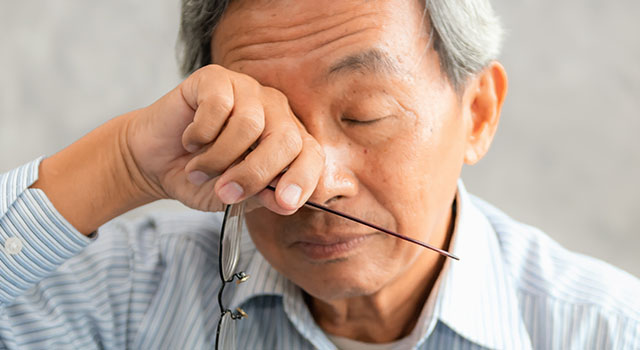
Winter is a season of cozy sweaters, hot cocoa, and crisp air—but for many, it is also the time when dry eye symptoms become more severe. If you have noticed your eyes feeling more irritated, itchy, or gritty during the colder months, you are not alone. At Pacific Vision Eyecare in Burlington, we often see an uptick in patients experiencing dry eye symptoms during winter. But why does this happen, and what can you do about it?
Why Are My Dry Eyes Worse During Winter?
The winter months bring a drop in humidity, both outdoors and indoors, thanks to heating systems that dry out the air. This lack of moisture can quickly lead to dry, uncomfortable eyes. Additionally, cold winds can cause tears to evaporate more quickly, leaving your eyes feeling parched. The combination of these factors makes winter a particularly challenging time for those with dry eyes.
Uncommon Dry Eye Symptoms
When people think of dry eye, they usually picture symptoms like redness, irritation, and a gritty feeling. However, dry eye can present itself in several less common ways that might surprise you:
- Watery Eyes: It may seem counterintuitive, but excessive tearing can be a sign of dry eye. Your eyes might produce more tears in response to the irritation caused by dryness.
- Blurred Vision: If your vision becomes blurry and clears up when you blink, it could be due to dry spots on your cornea caused by insufficient tear film.
- Light Sensitivity: Dry eyes can make your eyes more sensitive to light, causing discomfort in bright environments.
- Difficulty Wearing Contact Lenses: Dry eyes can make it uncomfortable to wear contact lenses, as the lack of moisture leads to irritation and a sensation of the lenses sticking to your eyes.
What Can I Do at Home to Manage Symptoms?
Managing dry eye symptoms at home is essential, especially during the winter months. Here are some effective winter eye care strategies you can try:
- Use a Humidifier: Adding moisture to the air in your home can help prevent your eyes from drying out. A humidifier in your bedroom or living space can make a big difference.
- Stay Hydrated: Drinking plenty of water throughout the day helps maintain your body’s overall hydration, which is crucial for tear production.
- Take Breaks from Screens: Prolonged screen time can exacerbate dry eye symptoms. Follow the 20-20-20 rule: every 20 minutes, look at something 20 feet away for at least 20 seconds.
- Apply Warm Compresses: Gently applying a warm compress to your eyes can help stimulate the glands in your eyelids that produce the oily layer of your tears, improving tear stability.
- Use Artificial Tears: Over-the-counter artificial tears can provide quick relief by lubricating your eyes. Choose preservative-free options if you use them frequently.
When Should I See My Eye Doctor About Dry Eye Symptoms?
While many dry eye symptoms can be managed at home, there are times when professional help is necessary. It is important to see your eye doctor if:
- Your symptoms persist despite home treatments.
- You experience significant discomfort or pain.
- Your vision is consistently blurred or impaired.
- You find it difficult to wear contact lenses due to dryness.
At Pacific Vision Eyecare in , our experienced eye care team can assess your symptoms, determine the underlying cause of your dry eyes, and recommend the most effective treatment options to provide long-term relief.
Get Professional Help for Dry Eyes at Pacific Vision Eyecare
Winter doesn’t have to mean suffering from dry eyes. With the right care and attention, you can keep your eyes comfortable and healthy all season long. If your dry eye symptoms are getting worse or not improving with home remedies, it is time to seek professional help. Contact Pacific Vision Eyecare in to schedule an appointment and find out how we can help you manage and treat your dry eye symptoms.
